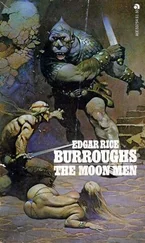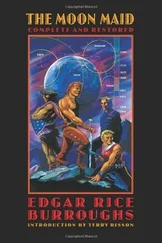Edgar Burroughs - The Red Hawk
Здесь есть возможность читать онлайн «Edgar Burroughs - The Red Hawk» весь текст электронной книги совершенно бесплатно (целиком полную версию без сокращений). В некоторых случаях можно слушать аудио, скачать через торрент в формате fb2 и присутствует краткое содержание. Жанр: Боевая фантастика, на английском языке. Описание произведения, (предисловие) а так же отзывы посетителей доступны на портале библиотеки ЛибКат.
- Название:The Red Hawk
- Автор:
- Жанр:
- Год:неизвестен
- ISBN:нет данных
- Рейтинг книги:3 / 5. Голосов: 1
-
Избранное:Добавить в избранное
- Отзывы:
-
Ваша оценка:
- 60
- 1
- 2
- 3
- 4
- 5
The Red Hawk: краткое содержание, описание и аннотация
Предлагаем к чтению аннотацию, описание, краткое содержание или предисловие (зависит от того, что написал сам автор книги «The Red Hawk»). Если вы не нашли необходимую информацию о книге — напишите в комментариях, мы постараемся отыскать её.
The Red Hawk — читать онлайн бесплатно полную книгу (весь текст) целиком
Ниже представлен текст книги, разбитый по страницам. Система сохранения места последней прочитанной страницы, позволяет с удобством читать онлайн бесплатно книгу «The Red Hawk», без необходимости каждый раз заново искать на чём Вы остановились. Поставьте закладку, и сможете в любой момент перейти на страницу, на которой закончили чтение.
Интервал:
Закладка:
The way, of course, was all well known to us, and so we knew just what was ahead and dreaded the fifth march, which was a terrible one, by far the worst of them all. It lay across a rough and broken area of desert and crossed a range of barren mountains. For forty-five miles it wound its parched way from water hole to water hole.
For horsemen alone it would have been a hard march, but with cattle and sheep to herd across that waterless waste it became a terrific undertaking. Every beast that was strong enough carried hay, oats or barley, in sacks, for we could not depend entirely upon the sparse feed of the desert for so huge a caravan; but water we could not carry in sufficient quantities for the stock. We transported enough, however on the longer marches to insure a supply for the women and all children under sixteen, and on the short marches enough for nursing mothers and children under ten.
We rested all day before the fifth march began, setting forth about three hours before sundown. From fifty camps in fifty parallel lines we started. Every man, woman and child was mounted. The women carried all children under five; usually seated astride a blanket on the horse’s rump behind the mother. The rest rode alone. The bulk of the warriors and all the women and children set out ahead of the herds, which followed slowly behind, each bunch securely hemmed in by outriders and followed by a rear guard of warriors.
A hundred men on swift horses rode at the head of the column, and as the night wore on gradually increased their lead until they were out of sight of the remainder of the caravan. Their duty was to reach the camp site ahead of the others and fill the water tanks that slaves had been preparing for the last two months.
We took but a few slaves with us, only personal attendants for the women and such others as did not wish to be separated from their masters and had chosen to accompany us. For the most part the slaves preferred to remain in their own country, and we were willing to let them, since it made fewer mouths to feed upon the long journey, and we knew that in the Kalkar country we should find plenty to take their places, as we would take those from the Kalkars we defeated.
At the end of five hours we were strung out in a column fully ten miles long, and our outriders on either flank were often half a mile apart; but we had nothing to fear from the attacks of human enemies, the desert being our best defense against such. Only we of the desert knew the desert trails and the water holes, only we are innured to the pitiless hardships of its barrenness, its heat, and its cruelties.
But we have other enemies, and on this long march they clung tenaciously to our flanks, almost surrounding the great herds with a cordon of gleaming eyes and flashing fangs-the coyotes, the wolves, and the hellhounds. Woe betide the straggling sheep or cow that they might cut off from the protection of the rear guard or the flankers. A savage chorus; a rush, and the poor creature was literally torn to pieces upon its feet. A woman or child with his mount would have suffered a similar fate, and even a lone warrior might be in great danger. If the brutes knew their own strength, they could, I believe, exterminate us, for their numbers are appalling; there must have been as high as a thousand following us upon that long march at a single time.
But they hold us in great fear because we have waged relentless warfare against them for hundreds of years, and the fear of us must be bred in them. Only when in great numbers and goaded by starvation will they attack a full grown warrior. They kept us busy all during the long nights of this wearisome march, and they kept our shaggy hounds busy, too. The coyotes and the wolves are easy prey for the hounds, but the hellhounds are a match for them, and it is these that we fear most. Our hounds, and with the fifty clans there must have been gathered a full two thousand of them, work with tireless efficiency and a minimum of wasted effort when on the march.
In camp they are constantly fighting among themselves, but on the march, never. From the home camp they indulge in futile chases after rabbits, but on the march they consume no energy uselesssly. The dogs of each clan have their pack leader, usually an experienced dog owned by the hound-chief of the clan. The Vulture is our hound-chief, and his hound, old Lonay, is pack leader. He does his work and leads his pack with scarce a word from the Vulture. He has about fifty hounds in his pack, twenty-five of which he posts at intervals about the herd, and with the other twenty-five old Lonay brings up the rear.
A high-pitched yelp from one of his sentries is a signal of attack, and brings Lonay and his fighting dogs to the rescue. Sometimes there will be a sudden rush of coyotes, wolves and hellhounds simultaneously from two or three points, and then the discipline and intelligence of old Lonay and his pack merit the affection and regard in which we hold these great, shaggy beasts.
Whirling rapidly two or three times, Lonay emits a series of deep-throated growls and barks, and instantly the pack splits into two or three or more units, each of which races to a different point of trouble. If at any point they are outnumbered and the safety of the herd imperiled, they set up a great wailing which is the signal that they need the help of warriors, a signal that never goes unheeded. In similar cases, or in the hunt, the hounds of other packs will come to the rescue, and all will work together harmoniously, yet if one of these same hounds should wander into the others’ camp a half hour later he would be torn to pieces.
But enough of this, and of the long, tiresome march. It was over at last. The years of thought that I had given it, the two months of preparation that had immediately preceded it, the splendid condition of all our stock, the training and the temper of my people bore profitable fruit, and we came through without the loss of a man, woman or child, and with the loss of less than two in a hundred of our herds and flocks. The mountain crossing on that memorable fifth march took the heaviest toll, mostly lambs and calves falling by the trail side.
With two days out for rest we came, at the end of the tenth march and the twelfth day, to the lake called Bear and into a rich mountain country, lush with feed and game. Here deer and wild goats and wild sheep abounded, with rabbit and quail and wild chicken, and the beautiful wild cattle that the legends of our slaves tell us are descended from the domestic stock of the ancients.
It was not my plan to rest here longer than was necessary to restore in full the strength and spirits of the stock. Our horses were not jaded, as we had had sufficient to change often. In fact, we warriors had not ridden our war horses once upon the journey. Red Lightning had trotted into the last camp fat and sleek.
To have remained here long would have been to have apprised the enemy of our plans, for the Kalkars and their slaves hunt in these mountains which adjoin their land, and should a single hunter see this vast concourse of Julians our coming would have been known throughout the valleys in a single day, and our purpose guessed by all.
So, after a day of rest, I sent the Wolf and a thousand warriors westward to the main pass of the ancients with orders to make it appear that we were attempting to enter the valley there in force. For three days he would persist in this false advance, and in that time I felt that I should have drawn all the Kalkar fighting men from the valley lying southwest of the lake of the Bear. My lookouts were posted upon every eminence that gave view of the valleys and the trails between the main pass of the ancients and that through which we should pour down from the Bear out into the fields and groves of the Kalkars.
The third day was spent in preparation. The last of the arrows were finished and distributed. We looked to our saddle leathers and our bridles. We sharpened our swords and knives once more and put keener points upon our lances. Our women mixed the war paint and packed our belongings again for another march. The herds were gathered and held in close, compact bunches.
Читать дальшеИнтервал:
Закладка:
Похожие книги на «The Red Hawk»
Представляем Вашему вниманию похожие книги на «The Red Hawk» списком для выбора. Мы отобрали схожую по названию и смыслу литературу в надежде предоставить читателям больше вариантов отыскать новые, интересные, ещё непрочитанные произведения.
Обсуждение, отзывы о книге «The Red Hawk» и просто собственные мнения читателей. Оставьте ваши комментарии, напишите, что Вы думаете о произведении, его смысле или главных героях. Укажите что конкретно понравилось, а что нет, и почему Вы так считаете.








